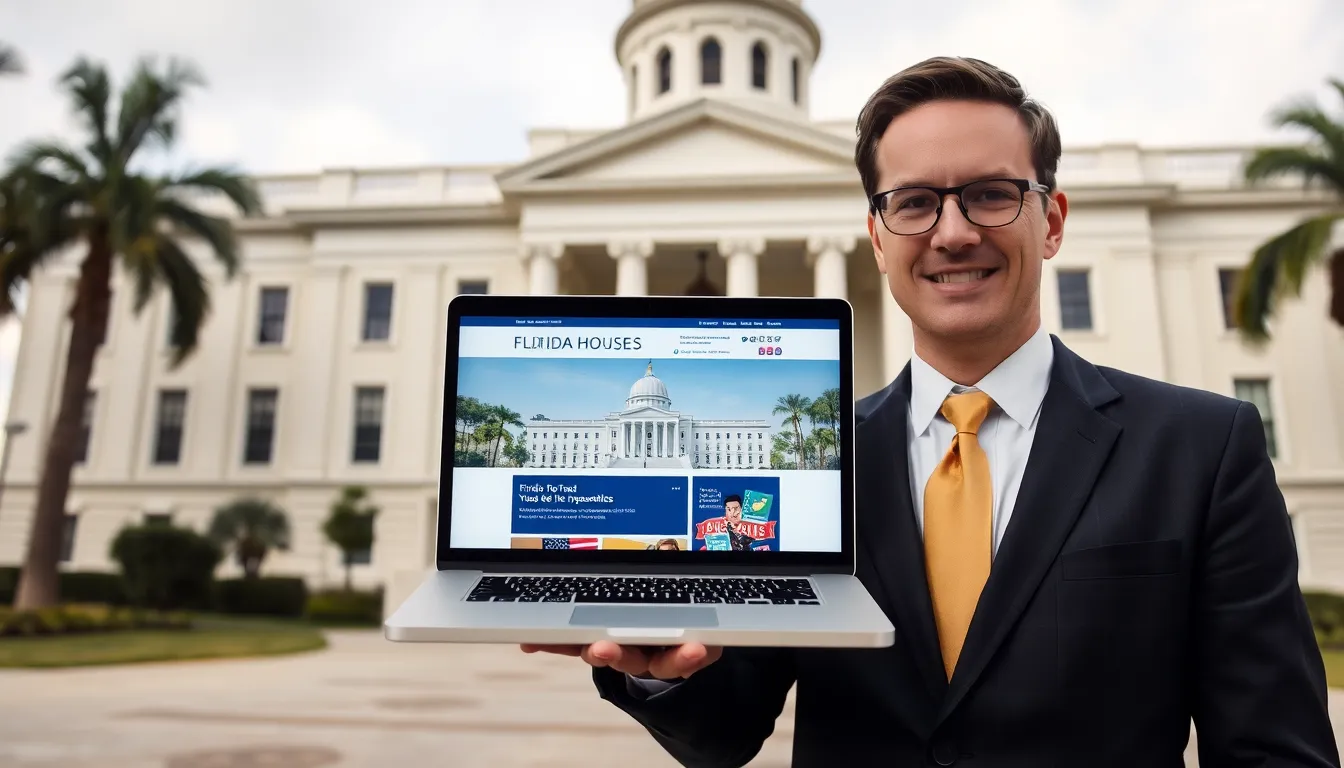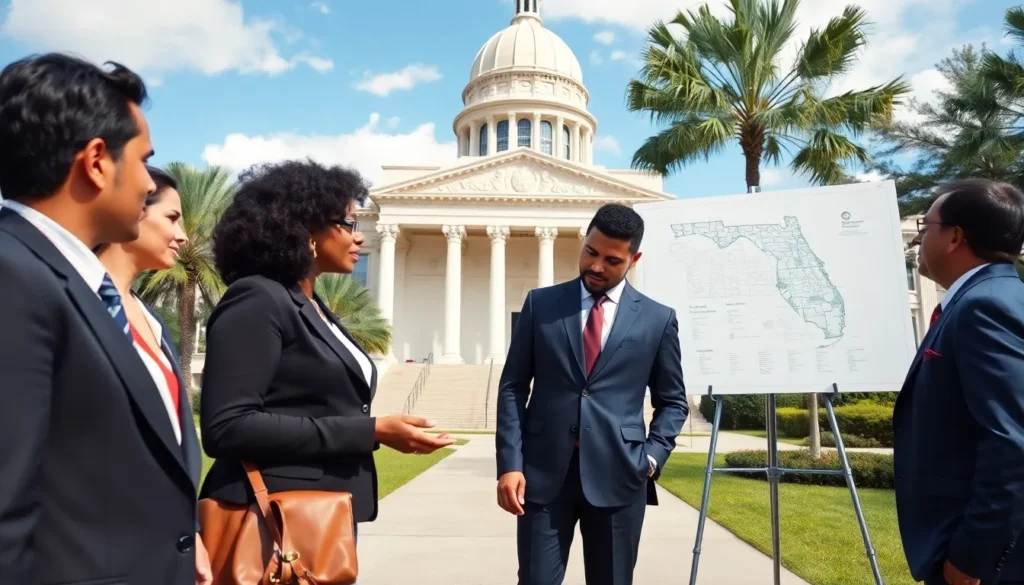Navigating the political landscape can feel like trying to find a needle in a haystack, especially when it comes to identifying your Florida state representative. With a state as vibrant and diverse as Florida, knowing who’s representing your interests is crucial. After all, they’re the ones making decisions that could impact your beach days, theme park visits, and even your favorite local taco truck.
Table of Contents
ToggleUnderstanding Florida State Representatives
Florida state representatives play a crucial role in shaping legislation that impacts the daily lives of residents. Their decisions influence various sectors, from education to healthcare and infrastructure.
Role and Responsibilities
Representatives craft, debate, and vote on laws at the state level. They also advocate for their constituents’ interests, ensuring local needs receive attention. Meetings, often held in committees, allow representatives to discuss various issues in depth. Responding to constituents is vital; representatives engage with the public to gather feedback and opinions. Each representative serves a specific district, meaning they focus on localized concerns and priorities.
Importance in Local Government
Local government relies heavily on state representatives for resource allocation and legislative support. Citizens benefit directly from decisions regarding funding for schools, public services, and community programs. Representatives serve as a bridge between local issues and state policies, amplifying voices in the legislature. Active engagement fosters a sense of community, encouraging participation in government processes. Effective representatives can drive positive change, making them essential to the functioning of local government.
How to Find Your Florida State Representative

Finding a Florida state representative involves simple steps that utilize available resources. Understanding how to access information effectively can streamline the process.
Online Resources
State representatives maintain a strong online presence. The official Florida House of Representatives website provides comprehensive details about each representative, including their district and contact information. Constituents can enter their address on the site to identify their representative quickly. Additionally, websites like Ballotpedia and local county boards of elections offer valuable data on elected officials. Social media platforms also enable direct engagement; representatives often share information about their activities and initiatives. Using these online tools makes it easier to stay informed and connected.
Contacting Local Offices
Local offices serve as critical points of contact for constituents. Residents can visit or call their representatives’ local offices for assistance with specific issues. Staff members at these offices are equipped to help with inquiries regarding legislation, community concerns, and resources. Engaging with local staff fosters open communication and strengthens community ties. Office hours and locations are typically listed on the representative’s website, allowing individuals to plan their visits accordingly. Reaching out directly can enhance understanding of ongoing initiatives and encourage active participation in local governance.
The Process of Representation in Florida
Understanding how representation works in Florida is vital for constituents. Various mechanisms ensure that every Floridian has a voice in government.
Election Process
Every two years, voters elect Florida state representatives. Districts are drawn to reflect population demographics, ensuring equal representation. Candidates typically run in partisan elections, and primary elections determine the nominees. Following the party primaries, the general election pits the nominees against one another. Voter turnout plays a crucial role in determining the outcome, as higher engagement often leads to more competitive races.
Term Limits and Responsibilities
Florida’s state representatives serve a term of two years, with no limits on consecutive terms. Responsibilities include crafting legislation, participating in committee work, and representing constituents’ interests. They address various local and state issues, ranging from budgets to social policies. Engaging with their communities remains vital for obtaining feedback on legislative priorities. Regular communication with constituents fosters trust and ensures representatives stay informed about their needs and concerns.
Key Issues Faced by Florida State Representatives
Florida state representatives tackle various critical issues that affect their constituents deeply. Addressing these topics contributes significantly to the community’s overall well-being and development.
Education
Education funding remains a top priority. Florida representatives oversee budget allocations for public schools and higher education institutions. Efforts focus on improving teacher salaries, reducing class sizes, and enhancing educational resources. Additionally, they advocate for equitable access to quality education across diverse demographics. Legislators often engage with local communities to understand specific needs, ensuring that policies reflect the priorities of their constituents.
Healthcare
Healthcare access poses another pressing concern in Florida. Representatives work on legislation aimed at expanding healthcare coverage and improving public health services. Tackling mental health issues has gained increased attention, as lawmakers push for resources dedicated to mental health initiatives. They also address healthcare affordability, working to lower prescription drug prices and improving patient care. Engaging with healthcare providers and constituents allows representatives to craft effective solutions.
Environment
Environmental issues occupy an essential place on the legislative agenda. Florida state representatives focus on protecting natural resources and addressing climate change impacts. Efforts include promoting sustainable practices and investing in renewable energy sources. Water quality remains a significant concern, prompting legislative action to protect Florida’s water supply. Collaborating with environmental organizations enhances representatives’ ability to create impactful policies that benefit both the community and the environment.
Understanding who your Florida state representative is can empower residents to engage actively in local governance. By knowing their representative, constituents can address concerns directly and influence decisions that affect their daily lives. The resources available make it easy to identify and communicate with these officials, fostering a stronger connection between the community and its leaders. Active participation not only enhances transparency but also ensures that representatives remain attuned to the needs of their constituents. As Florida continues to evolve, the role of state representatives will remain crucial in shaping policies that promote the well-being of all residents.




